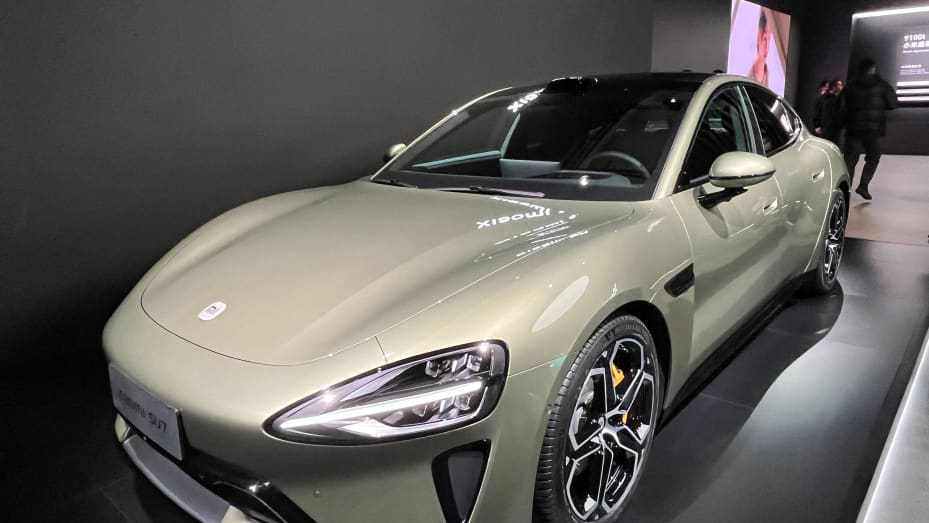
Global attention has been drawn to the electric vehicle (EV) industry in recent years due to a notable increase in competition.
Although the market leader Tesla (NASDAQ: TSLA) continues to lead, strong competitors like BYD, XPeng (NYSE: XPEV), and Li Auto (NASDAQ: LI) have also surfaced. The well-known automakers Toyota, Volkswagen, and BMW have also joined the EV market.
On December 28, a new player entered the market when the Chinese smartphone behemoth Xiaomi unveiled its first electric vehicle and stated its lofty goals for the very competitive EV market.
SU7 surpasses Tesla Model S and Porshe Taycan, according to Xiaomi
The CEO of the business, Lei Jun, stated in a post on X on December 26 that the company's first car, known as the Xiaomi SU7, is presently "in trial production and it will hit the domestic market in a few months." He continued, "The price of the car hasn't been finalized yet."
To develop its first electric vehicle, Xiaomi claimed to have spent 10 billion yuan ($1.4 billion). During a three-hour presentation, Lei Sun claimed that the SU7 outperforms Tesla's Model S and Porsche's Taycan in terms of acceleration and other metrics.
Lei stated that the SU7 has all it takes to lead the industry, even in developing fields like autonomous driving. A group of former employees of the automotive behemoths Mercedes Benz and BMW designed the vehicle.
The SU7 is described as being solely battery-powered, with a driving range of 628 kilometers (390 miles) to 800 kilometers, in a document released by the Ministry of Industry and Information Technology. Additionally, the ministry identified Xiaomi's EV manufacturer as a division of the state-owned BAIC Group.
Combined with the smartphones made by Xiaomi
Broadly speaking, Xiaomi has stated that its objective is to develop a "Human x Car x Home" smart ecosystem.
According to Lei, the SU7 will be compatible with Xiaomi's smartphones and internet-enabled home appliances in this regard. He also highlighted the company's efforts to build a car that surpasses US safety regulations for rear-end collisions and to protect user privacy when data is transferred between devices.
The EV is expected to go on sale in 2024, having spent more than three years in development.